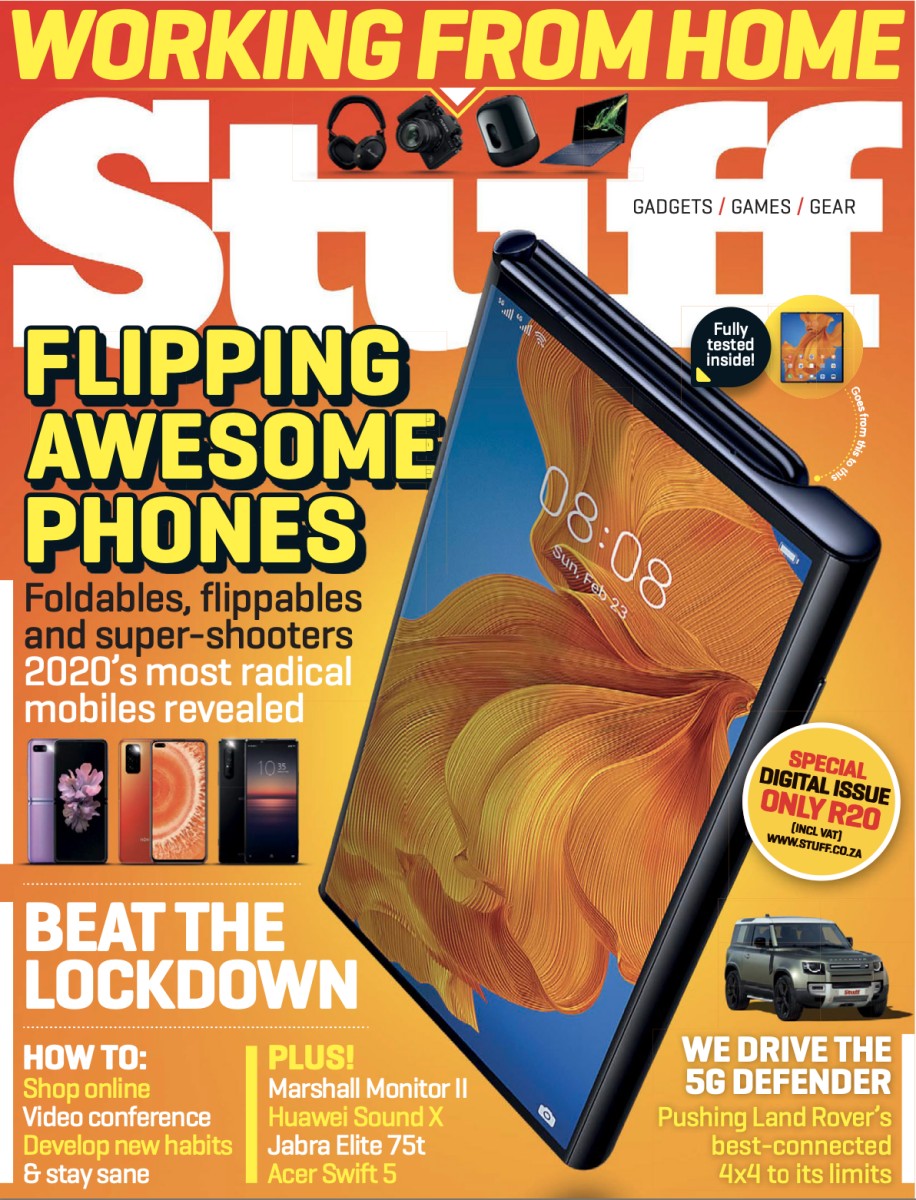Africa News
Stuff magazine, South African edition
We have no business relationship with Stuff, but have deep respect for its work and its team, and regularly share thoughts on the future of high-tech. The magazine is on the verge of closing down. Its publisher, TOBY SHAPSHAK, has made this plea.
When the editor of the Mail & Guardian wrote a heartfelt plea to subscribers, it was both a tragic sign of the state of the economy, especially our industry, and an uplifting reminder of the important role the media plays in society.
Uplifting because a competitor – the Daily Maverick – republished Khadija Patel’s plea and in no time, enough people had subscribed to help.
It was particularly stark for me that the bastion of such great independent journalism was in such dire straits – again – and was forced into this unseemly position.
I know the feeling – and not just because of my long association with the M&G, where I began my career. Sadly, media the world over is in trouble. Some have called this coronavirus-induced economic shutdown a “media extinction event“. The economic effects are particularly hard on the media, which relies on marketing budgets, the first thing to be cut in a crisis.
In the last month, two South African magazine groups – Associated Media and Caxton’s magazine division – have announced they are closing. Caxton is particularly close to home. They have no shareholding in Stuff, but we rent office space in one of their buildings.
As my friend Tim Cohen, wrote after Caxton’s closure was announced: “The economic travails of the coronavirus lockdown have exacerbated a crisis in the South African media, accentuating a longstanding decline – particularly of the printed media”.
As you know, my business partner Sally Hudson and I own a small publishing business. Stuff magazine is all we publish: in print, online and mobile. Podcasts, YouTube, Instagram, Facebook and Twitter. We do it all.
We pride ourselves in being a modern, nimble and innovative media company. Our team are multi-talented journalists and are themselves consumers of the digital culture and tech services we cover. Some are ardent gamers, some are Android-lovers, others are Steve Job’s bitch, like me. All of us live and breathe technology, and our audience and advertisers know that.
But we are unfortunately in just as much danger as the Mail & Guardian.
We do not cover corruption, nor human rights, nor politics. But we play our part in the media, in this larger tapestry of freedom of information. We tell people how to use their technology to make their lives better. We have been showing South Africans since 2007 how to upskill themselves, educate themselves and, let’s be honest, be better at Fortnite.
Stuff began as a publication showcasing shiny gadgets. We evolved, in these digital and mobile times, into a publication that enhances your life with better skills and the best advice. And we perform the vital task of advising people when they buy or upgrade their technology.
We also employ eight people, all with families and dependants. For several of these households, the salary from Stuff is the only income.
It’s Sally’s and my job to pay their salaries.
Never before has tech been so important in our lives as in this strange pandemic world of remote working and learning. As the authority in this market, Stuff is perfectly placed to advise and educate the public on how to survive and thrive as a business, entrepreneur, student or family.
Luckily, we evolved as a brand years ago when we saw the changes coming in the media and media consumption. We therefore have a strong cross-media platform.
We may have begun as a magazine, but we’ve evolved into a full production house:
- We shot a pilot for a food show (I’m a passionate foodie) and are working on an exciting new YouTube channel.
- We have an African-focused podcast on how innovation is better in Africa – including smart startups and tech – and we are working on a documentary on the remarkable rise of mobile on our continent. “Africa is a mobile-only continent,” as I wrote for CNN a decade ago.
- Stuff also creates content for other brands, including podcasts, videos, advertorials and digitorials.
We understand times are tough for everyone, and that budgets are being cut in the face of the Covid-19 pandemic; and the economic wrecking ball of lockdowns around the world.
But frankly, we rely on your advertising and marketing spend to keep our magazine alive. I’ve been saying, informally, that it’s all well and good for tech firms to get free publicity from Stuff, but if marketing budgets are not being directed to us, then one day there won’t be a Stuff magazine.
Please support print as well as digital. Print is very much alive in our country, defined quite correctly as an emerging market. Without cheap and abundant internet, print provides many millions of South Africans vital access to news and information.
With no print edition of Stuff, there will be no more features on your products – which is as detrimental to you as it is to us.
If your budgets are cut, speak to us and we can work on a package to suit them.
If consumers don’t buy – or don’t know what to buy – and advertisers don’t spend, none of us are going to survive.
I’m finishing this after President Cyril Ramaphosa’s Sunday night speech announcing the country is moving to level 3 lockdown from 1 June and that the economy is being opened up.
We desperately need the economy to be reignited. You need to sell your products as much as we need to sell our magazine and publish our web and mobile sites.
As we discover what this new normal we’ve been talking about for the last two months will become, let’s do it together.
Over


















